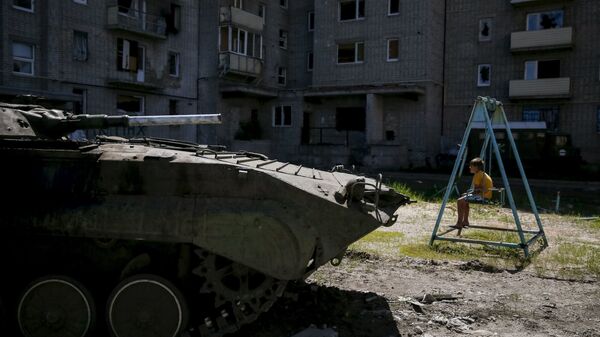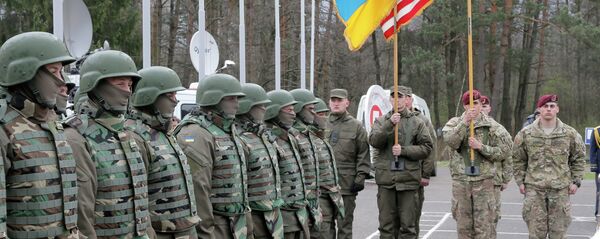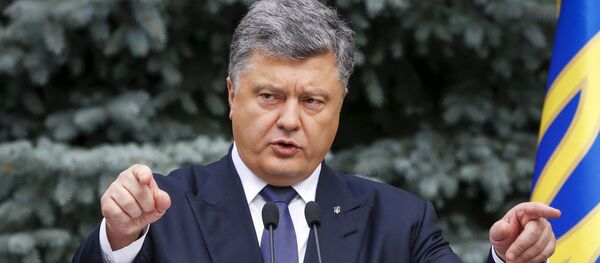"The evolution of the Ukrainian conflict — whether toward a settlement or toward escalation — will be most strongly shaped not by Kiev but by the actions of and relationship between Moscow and Washington," Stratfor noted.
The geopolitical intelligence firm frames the Ukrainian crisis as essentially a clash between two conflicting geopolitical imperatives with long-term implications.
"Russia wants to protect its interior by using its surrounding territories to establish a buffer. The United States wants to prevent the rise of regional powers that could potentially challenge US hegemony," Stratfor explained.
Not surprisingly then, Russia has been wary of the US activities in Europe: Washington plans to deploy more military hardware to Eastern Europe and the Baltics and pushes for more war-games, involving NATO members and partner nations, close to Russia's borders.
Of all NATO member states, "the United States has the strongest military and the most assertive policies challenging Russia throughout the former Soviet periphery," Stratfor pointed out. In the end, these "assertive policies" targeting but unprovoked by Russia might undermine the fragile European security.
Although both countries are of particular significance for the resolution of the Ukrainian conflict, only one of them has been directly involved in the peace process, Russia. The United States, whom Stratfor calls "a major political, economic and security player in Ukraine and the broader standoff between Russia and the West," is not taking part in the two primary negotiations formats.
The first format comprises Kiev authorities, self-defense forces and representatives of the Organization for Security and Co-operation in Europe (OSCE) looking for solutions for tactical issues.

The second one is known as the Normandy format. Within its framework, Ukraine, Russia, Germany and France are pushing for a permanent solution to the Ukrainian crisis through the full implementation of the Minsk accords. Among other things this agreement involves autonomy for the Donbass region.
As part of this new trend US Undersecretary of State Victoria Nuland and Russian Deputy Foreign Minister Grigory Karasin discussed the implementation of the Minsk agreements and the constitutional reform process during a recent phone call.
A new format makes great sense, according to Stratfor, since "in some ways, these two countries wield more power to shape the political and military outcome in Ukraine" than Kiev authorities and independence supporters.
The geopolitical intelligence firm warned that it might be too early to celebrate the end of the Ukrainian crisis yet.
"Issues still divide the two sides, particularly what kind of autonomy Ukraine's central government should give the rebel regions," Stratfor said. Although all parties to the conflict support the idea of decentralization, this remains a major point of contention in terms of timing and the scale.
Kiev wants to provide less autonomy and is ready to amend the constitution after self-defense forces disarm, while independence supporters are seeking greater autonomy and are ready to lay down arms only after appropriate changes are introduced and Kiev fulfills all its promises.
Recently, Nuland urged Kiev authorities to grant "the country's eastern regions a controversial and highly debated 'special status' under the law. Officials had not included the term in the constitutional amendment draft, but US pressure to deliver more on the sensitive issue could be seen as a nod to Russia," the think tank asserted.
Time will tell if Kiev acts on the US advice and whether Washington truly wants to solve the Ukrainian crisis. Meanwhile, Washington and Moscow will be engaged in more talks as part of the newly-devised bilateral format.
"The evolution of Ukraine's conflict and the political reform process will be the true test of the effectiveness of this new bilateral dialogue between the United States and Russia," Stratfor concluded.






